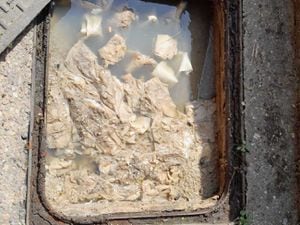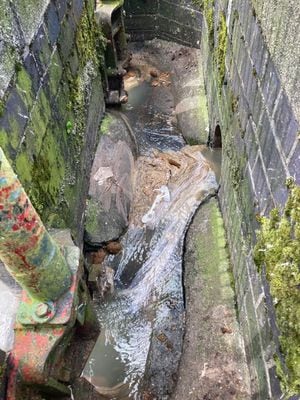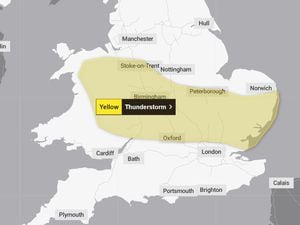Grim images released as part of plea not to flush wet wipes or oil down drains
A water company is pleading with the public not to flush wet wipes or put oil down drains – for fear of creating major blockages.

Severn Trent said masses of wet wipes and cooking fat, oil and grease are ending up in the Shropshire sewer networks every day after being wrongly disposed of down the drains.
The company has also released images of grim blockages caused on county sewer networks.
The news comes following the recent discovery of a ‘wet wipe island’ on the river Thames, which is not only changing the shape of the riverbed but is also damaging aquatic life in the river’s ecosystem.
The congealed masses of wipes and fat, oil and grease (FOG) can have a devastating impact, causing blockages which back up sewage, and then spill into rivers.
As they break down they release microplastics, damage aquatic life and impact the ecosystems.
Grant Mitchell from Severn Trent said: “From underwear and false teeth to tennis balls and tyres, we’ve has some bizarre things make their way into our sewer network over the years. But it’s the day-to-day items, such as wet wipes, cotton buds, sanitary products and cooking oils, that can create the biggest issues in our region’s sewer networks.
“These giant congealed masses often cause big problems when they arrive at sewage treatment works. However, in the worst-case scenario, they don’t even make it to the works, instead blocking sewer pipes, which can lead to wastewater backing up into homes, gardens and rivers. Preventing our sewers from becoming blocked could save numerous pollutions each year and would be a key step in our journey to making our regions rivers the healthiest they can be.”

Most sewer pipes only have a diameter of around 150mm – or slightly larger than an average roll of toilet paper – so it doesn’t take much for a blockage to form.
Mr Mitchell added: “Sewer blockages are a really horrible thing for anyone to experience. To avoid blockages we advise waiting for cooking fats, oils and greases to cool before disposing of them in the bin and only flushing the three P’s – pee, paper and poo – anything else should go in the bin.”
The company said it has been called out to thousands of blockages across the region in the last year alone, of which the majority were caused by people misusing the sewer system by putting things like cooking oils, wipes, nappies, sanitary products and tampons down the drains.





